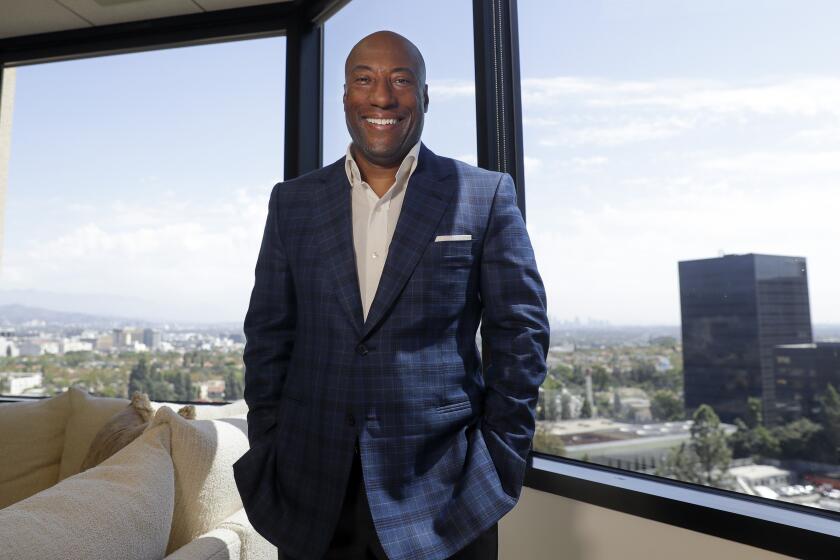If You Want Their Advice . . . : Fund Firms Want to Help You Invest--With Them
- Share via
Vanguard is offering its no-load customers financial planning and asset management. Fidelity and Dreyfus are offering high-net-worth customers asset management and advice. Smith Barney, Prudential and Merrill Lynch are offering their customers no-load mutual funds.
Mutual fund customers are hot properties, and the name of the game for fund companies is assets under management. The more money funds manage, the more fees they collect. So direct-marketed funds want to keep their customers, and brokerage houses want to entice them to switch.
Beyond the “we want to help you invest” rhetoric of fund firms, however sincere, are huge numbers: A third of all money in mutual funds--about $776 billion, excluding variable annuities--is in direct-marketed no-load or low-load funds, according to the Investment Company Institute, the industry trade group. Overall, direct-marketed fund sales are growing. So far this year, load and no-load sales have run neck and neck.
There is a belief that do-it-yourself investors need the expanded services and are willing to pay for them.
Thus, the marketers’ weapons of choice: education, advice, asset management and financial planning.
“There is a huge groundswell for education,” said Louis Harvey, president of Dalbar, a Boston mutual fund. The firm released a survey last month reporting that making money is not the top priority for investors--education is. Getting the top return is third; minimizing taxes is second.
Why the desire for education? The confusion caused by the fact that there are more than 8,000 mutual funds.
“What is becoming the real problem is not finding a good mutual fund,” said Don Phillips, president of Morningstar Inc., a Chicago service that follows the fund industry, “but how do you assemble a fund portfolio intelligently enough to meet your goals? In the past 10 years, people with ill-defined goals have spent a lot of time chasing hot funds, and now they find they aren’t sure of what they have and how it fits.”
“The people who are coming to us are people who want advice, not people taking a flier with their mad money,” said Martin Phillips, executive vice president of Smith Barney and head of its Trak program. “We see overlapping securities and investors unsure of what they have. So we will do long-term asset allocation for them.”
Richard Stevens, a principal in the Vanguard Group and head of its advisory services, agreed about investor choices. “They have bought some funds here and there, and they need some sense brought to their portfolios. They need to be reconfigured, because they have usually been buying last year’s performance.”
Vanguard is offering computerized financial, estate and retirement plans for $500 each, or all three as a complete plan for $1,500, to help investors define goals. The plans are based on answers customers provide to a questionnaire and are reviewed by a financial planner.
“They’re not for everyone,” Stevens said. “They are for those people between the do-it-yourselfer and those who need a comprehensive financial plan.”
Judy Lau, president-elect of the Institute of Certified Financial Planners and a Delaware planner, isn’t worried about the competition. “There may not be enough planners to go around as baby boomers really begin to look at their retirement needs,” she said.
“Imitation is the sincerest form of flattery, I guess,” Lau said. “But frankly, most of our customers want that face-to-face contact. They don’t want to dial 1-800 and tell their most intimate [financial] secrets to a voice on the end of the line.”
For that very reason, Denver-based Janus funds is not planning to offer those services now. “We feel it is really very difficult to give financial advice without sitting down with the customers. You can’t get the full picture of their lives by doing it over the phone,” said Janus Vice President Chrissy Snyder.
Executives of T. Rowe Price and Scudder Stevens Clark, two major direct-marketed fund firms, said they are considering asset management plans for customers with more than $100,000 invested.
(BEGIN TEXT OF INFOBOX / INFOGRAPHIC)
Offering Information
Here’s a look at some current advice programs:
* Prudential is offering 200 load and no-load funds in its new PruChoice program with no commission. The program, announced last month, is for customers with investments of $25,000 or more or retirement accounts of at least $10,000. The program includes a questionnaire to determine investment goals, income expectations and risk tolerance. The annual fee is 1.25% of managed assets, paid quarterly.
* Smith Barney’s Trak program allows investors to bring their no-load funds into their company accounts and to buy no-load and load funds without commission. The investment minimum is $50,000 and the fee is 1.5%.
* Merrill Lynch has a new Financial Advantage Service program for clients with $100,000 or more. Customers pay a quarterly fee based on the value of their assets; it starts at 1.5% and decreases as assets grow. The more invested, the more services and commission-free trades offered. In addition, customers can buy load and no-load funds in the programs.
* Vanguard is offering computerized financial, estate and retirement plans for $500 each, or all three as a complete plan for $1,500. The plans, designed to help investors define their goals, are based on the answers customers provide to a questionnaire and are reviewed by a financial planner. For investors with more than $500,000 in assets at the firm, Vanguard offers personalized asset management and advice for 0.65% of managed assets if the investors have Vanguard as well as other fund assets, or 0.50% if they have only Vanguard funds. The more money an investor has in the program, the lower the fee.
More to Read
Inside the business of entertainment
The Wide Shot brings you news, analysis and insights on everything from streaming wars to production — and what it all means for the future.
You may occasionally receive promotional content from the Los Angeles Times.










